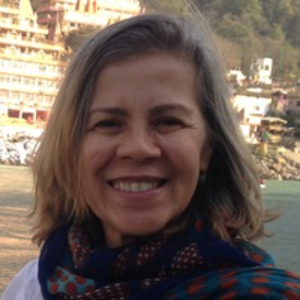Title : Advances and challenges of professional training in Traditional medicine, Ethnomedicine and natural therapies in Brazil.
Abstract:
The Brazilian Ministry of Health enacted the National Policy on Integrative and Complementary Health Practices in 2006, which legalizes the offer of 29 natural and traditional therapies in the Unified Health System (SUS). This offer shows an upward trend and is concentrated in Primary Health Care (78%), with emphasis on medicinal plants and phytotherapy, auriculotherapy, body practices, acupuncture, integrative community therapy, art therapy and homeopathy.
There is a growing interest of professionals and users of health services in these therapies, however their presence in the health professional training curricula is still restricted. Only 21% of medical schools address the topic, with an emphasis on acupuncture and homeopathy.
As a result, most new health professionals come to SUS knowing little or nothing about natural and traditional therapies, which reinforces prejudices due to ignorance, and delays the expansion of the offer of these practices in public health services.
On the other hand, there is a vigorous interest in natural and traditional therapies by segments of the private health education market, mainly through the offer of open courses, not regulated by the Ministry of Education, with a wide range of formats, hours and quality.
A group of health institutions that support natural and traditional therapies, led by the Brazilian Association of Collective Health, proposed a public debate on minimum quality criteria for professional training in the area, with the objective of promoting quality, safety and effectiveness. In addition, the FormaPICS Brazil research is being developed to diagnose the offer of courses and identify guidelines and recommendations for professional training available in national and international representative and regulatory institutions. Using a mixed method, data collection was carried out on public websites from April to July/2021, and the analysis combines quantitative (course profile) and qualitative (training recommendations and guidelines) strategies. The initial stage of the research focused on homeopathy, yoga, integrative community therapy, and reiki.
The first results reveal a mismatch between the dynamics of ancient traditions, less translatable to a contemporary rationalizing language, and the attempts to normalize them under technical standards and scientific criteria for professional training. Traditions such as yoga and reiki, for example, which were passed from master to disciple through an initiation process, are confronted by norms of professional councils and regulatory associations.
Another challenge is the great diversity of natural and traditional therapies in terms of complexity, resources and specific training needs, which require specific criteria for each practice, considering apprentices with different previous references, as suggested by the WHO.
The data on the courses provide information on prerequisites, training levels, offer modalities (face-to-face, online or hybrid), theoretical and practical workload, objectives, curriculum design and teacher qualifications, in addition to the profile of the training institutions. The data from the recommendations and guidelines made it possible to identify and analyze the main contents and propositions available for each practice. The correlation between the profile of the courses and the recommendations and guidelines is underway, with completion scheduled for March 2022.
What will audience learn from your presentation?
<>···Research findings, in terms of successful strategies and key challenges identified, can guide educational managers and professionals committed to natural and traditional therapies.
The presentation of the results of the FormaPICS Brazil research in this 3rd Edition of the International Conference on Traditional Medicine, Ethnomedicine and Natural Therapies may favor exchanges and partnerships for future comparative research




